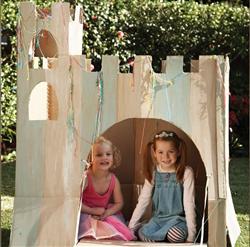Will Your Child be a Financially Responsible Adult?
Sponsored by Southern Community Bank and Trust
All parents hope their children will be able to effectively manage their money during adulthood, but financial responsibility isn’t something that can be taught, or learned, overnight. It’s important to start these lessons early and set a foundation for fiscal responsibility as adults. In fact, studies show that children who learn financial responsibility at a young age tend to have less debt and more savings when they become adults. Following are some ways you can begin the process with your child…
Start Communication Early
At a very young age, kids begin to realize they need money to get the things they want and that adults have the money to make those purchases. As soon as your child begins to acknowledge the presence and utility of money, that’s when the lessons should begin.
Get Them Involved
Getting your kids involved in household purchasing decisions is one of the most effective ways of teaching them to make smart financial decisions. Let them help make a grocery list based on planned meals a set budget or have them help hunt for money-saving coupons. These kinds of activities will demonstrate what it’s like to work within a budget.
Allow an Allowance
Children as young as 3 or 4 can begin to learn money management basics through a regular cash allowance. Start by giving your child a set amount each week, and then consider increasing that amount based on things like age and good behavior. Encourage your child to take a first step toward budgeting by compartmentalizing the money. Designate jars for categories like “spending”, “saving”, “investing”, and “giving.” You can make this even more fun by letting your child decorate each jar.
Start Them with Savings
Once your child has accumulated some savings from a regular allowance, take a trip to the bank to open a savings account. A good one to consider is Southern Community’s Minor Savings Account for children under the age of 18. We love to see kids starting to save early, so we’ll even add an extra $5 to the initial deposit! Once the account is open, encourage your child to add to the account regularly. You might even consider plotting a visual chart of savings so your child can easily see the savings grow.
Hinder Impulsiveness
Talk with your child about the dangers of impulsive spending and help distinguish between items that are needed and items that are wanted. For items that are wanted, help your child make a wish list of things that can be bought if they are diligent about saving over time. You can even offer to match the funds as an added incentive. For larger wish list items, you could introduce your child to the idea of credit by lending your child money to purchase the item, but establishing a timeframe for re-payment and charge a small amount of interest.
Make Lessons Fun
Children should understand that finances are a serious matter, but that doesn’t mean that lessons about money management can’t be fun and interesting. Try things that get the whole family involved. Count out your monthly household income in Monopoly money and work as a family to budget the money for household expenses. For a group of children, take them to the grocery store and assign each child a dollar amount and a part of the dinner menu (drink, main course, salad, dessert, etc.). After everyone purchases their portion, come home and prepare your budget-friendly dinner together.
Lead By Example
One of the best things ways to instill financial management skills in your child is to make smart financial decisions yourself. Young children notice your behavior, even if they cannot fully understand it yet. Make sure you make the kinds of decisions you want your children to make one day.
We hope this post provides you with some helpful ideas to start your child on the road to financial success. If you try any of these with your family, let us know the results on our Facebook page, or even share ideas of your own!
If you’d like to open a Southern Community Minor Savings Account with your child, stop by one of our branches anytime. Southern Community bankers are also available to come to your child’s school to talk about the basics of money, banking, budgeting, and credit as part of our Right on the Money program. Lessons can be tailored to fit a teacher’s current curriculum and the comprehension level of the children. If you’re interested in helping to bring this program to your child’s school, ask your child’s school teacher or school administrative staff to contact the bank for details.
Have you tried these tips with your family? What works for you? What other tips can you share?







